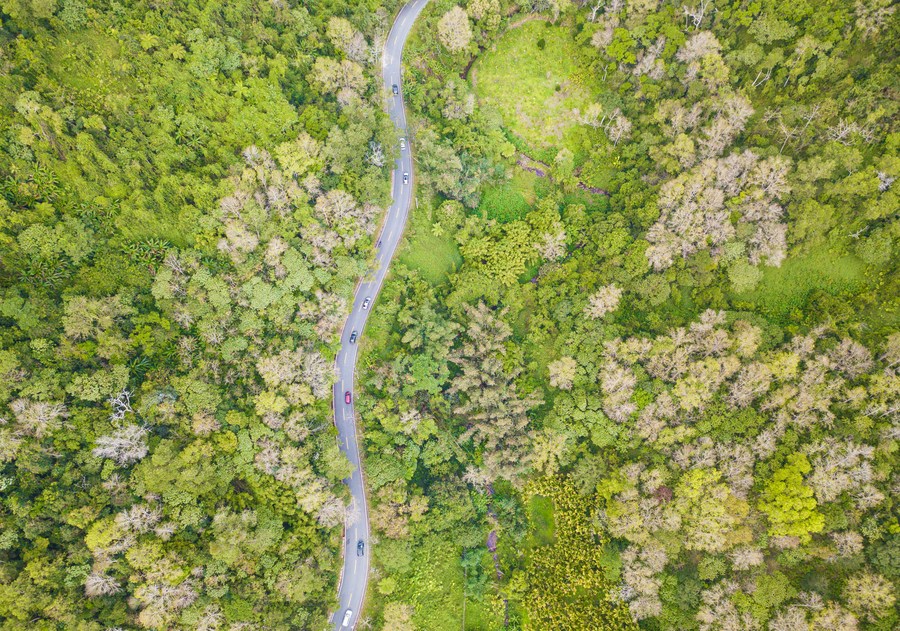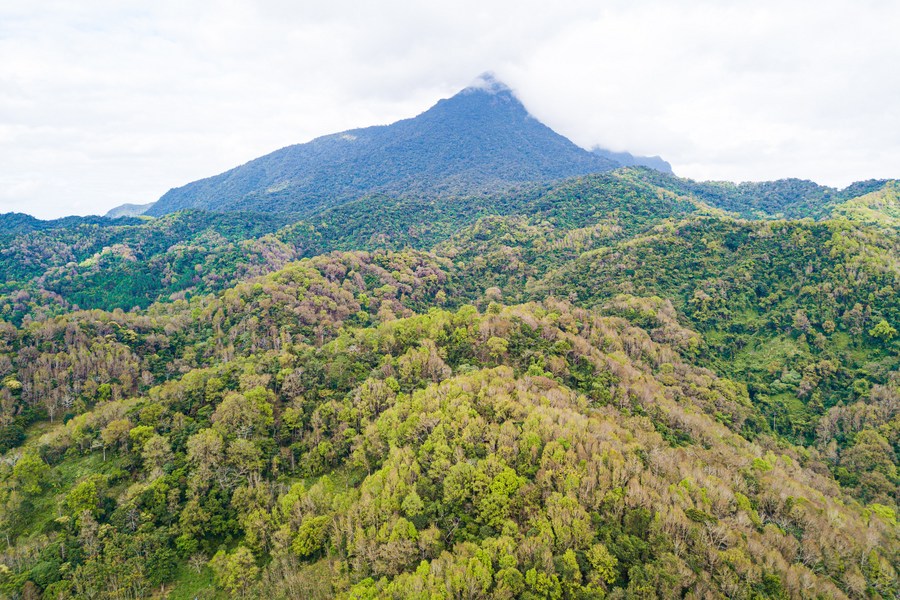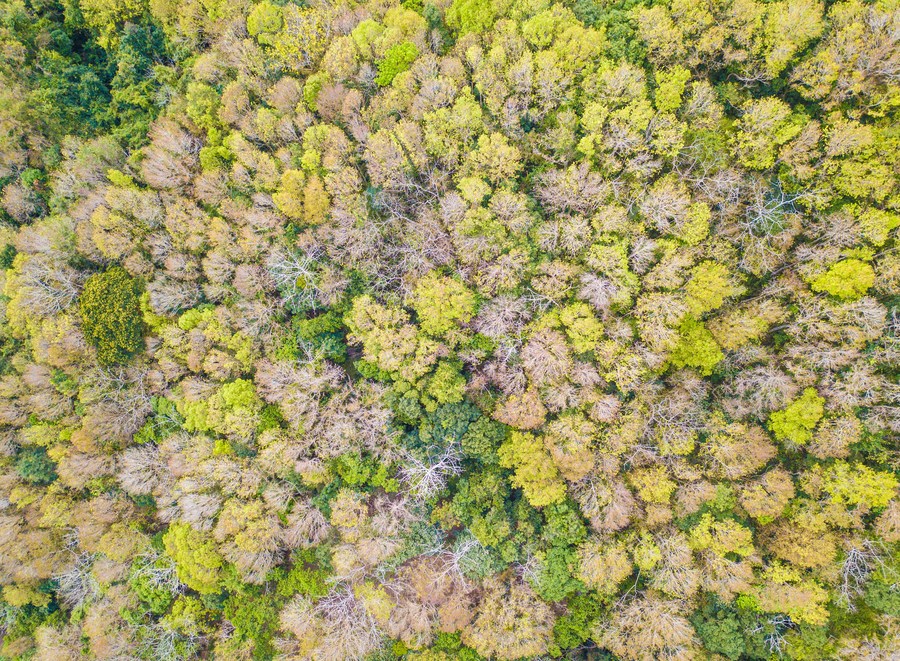[ad_1]

This aerial photo taken on Jan. 26, 2023 shows the Wuzhishan section of the Hainan Tropical Rainforest National Park in Wuzhishan City, south China’s Hainan Province. (Xinhua/Pu Xiaoxu)
HAIKOU, July 2 (Xinhua) — Zhang Guinyv has been away from her native mountain village for about one year and has embarked on a new journey towards an urban life in Wuzhishan City, south China’s Hainan province.
Zhang, a woman in her late 40s, is now doing a landscaping job provided by the local government, with a monthly salary of over 2,000 yuan (about 277 U.S. dollars) and a self-run children’s picture book library in her residential community.
“After moving to the Longqing New Village resettlement community, we have started to embrace the urban lifestyle. It’s convenient to see a doctor, buy groceries, and send children to school,” said Zhang, who previously lived within the core protection zone of the Wuzhishan section of the National Park of Hainan Tropical Rainforest.
As an important part of the world’s tropical rainforest system and a key area of China’s biodiversity conservation efforts, the park boasts one of the most concentrated, best preserved, and largest contiguous tropical rainforests in China.
To restore and protect the rainforest ecosystem, an ecological migration and resettlement program was carried out in Hainan. A total of 470 rural households in the core protection zone of the park were relocated out of the rainforest, including Zhang’s family.

This aerial photo taken on Jan. 26, 2023 shows the Wuzhishan section of the Hainan Tropical Rainforest National Park in Wuzhishan City, south China’s Hainan Province. (Xinhua/Pu Xiaoxu)
Like most villagers who have lived in the tropical rainforests for generations, Zhang’s family used to grow economic crops such as betel nuts, rubber, and peppers and collect herbal plants and wild honey, earning an annual income of up to 20,000 yuan.
Zhang said before leaving the mountain village that she felt a slight concern about whether her family could adapt to the pressure and pace of urban life, though her children were looking forward to the promising new life in the city.
Her concerns were soon relieved as her family, like other migrant households, made quick transitions from mountain villagers to urban residents with the substantial help of the government.
Special funds were allocated to compensate for the abandoned farmland and crops in the rainforest, and comprehensive public services and social welfare guarantees were provided for them.
A total of 505 people from 139 households who used to live in the core protection zone of the National Park of Hainan Tropical Rainforest in Wuzhishan City were required to be relocated, according to Zhang Xiaonian, deputy head of the forestry bureau of Wuzhishan.
The official also pointed out that the government has allocated approximately one billion yuan as special funds to compensate for the local residents’ land and crops, purchase endowment insurance for the relocated people, provide living allowances and education subsidies, and build resettlement communities in the urban area for them.

This aerial photo taken on Jan. 26, 2023 shows the Wuzhishan section of the Hainan Tropical Rainforest National Park in Wuzhishan City, south China’s Hainan Province. (Xinhua/Pu Xiaoxu)
The resettlement community for those former rainforest residents in Wuzhishan comprises four well-structured buildings, each with two elevators and access to natural gas, along with a range of amenities like a cultural activity room, a garden square, an underground parking lot, and nearby public facilities such as schools, hospitals, and markets.
Zhang’s family of seven was assigned a five-bedroom unit and a two-bedroom unit in the resettlement community a year ago. She also rented a 40-square-meter room in the resettlement community at half of the market price three months ago to open a children’s picture book library, providing after-school reading services for kids in the community.
The resettlement has left the tranquility and living space of the mountains to the rainforest creatures, while the former residents in the rainforest have started to embrace a better life.
After their relocation, Zhang’s family received appropriate compensation, with which Zhang decided to support her two daughters’ future education.
“My elder daughter took the college entrance examination this year and will soon go to study in university. We will support her until she finishes her studies,” Zhang said.
She added that, after moving away from the mountains, the villagers’ horizons have been broadened, and they have more opportunities and long-term plans. Their flourishing life has just begun.
(Web editor: Zhang Kaiwei, Liang Jun)
[ad_2]
Source link



